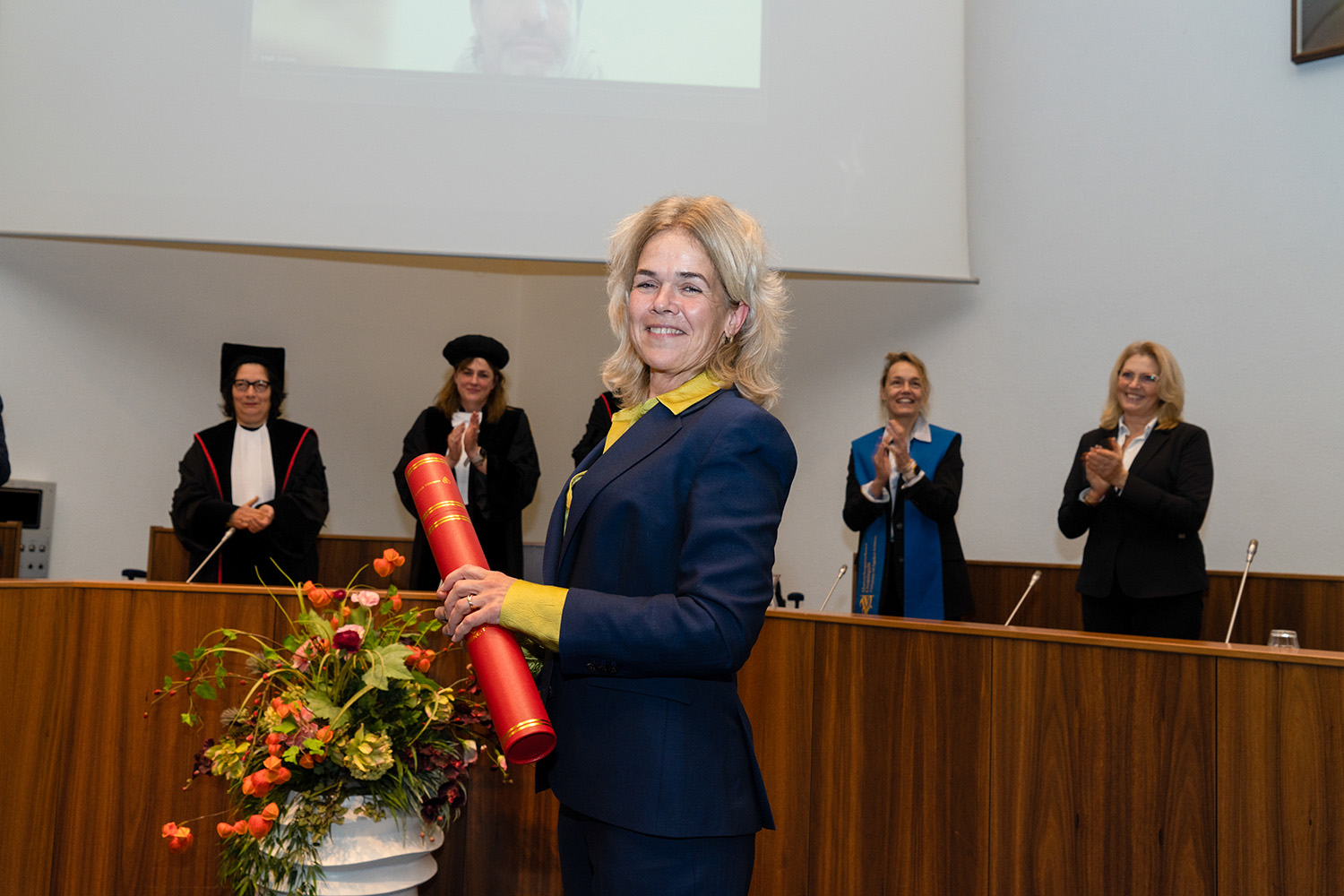PhD based on renewing expertise
19 December 2023
Lonneke Frie received her PhD on the subject of 'Flexpertise', the ability of people to renew their expertise.

On Monday, December 11, researcher Lonneke Frie from the research group Sustainable Talent Development received her PhD on the subject of 'Flexpertise'. A term that describes the ability of people to renew their expertise. In her dissertation 'From expert to flexpert: How workers meet new expertise needs throughout their career', Lonneke focuses this concept on workers. She concludes that organisations need to get rid of promotions and climbing. It is more effective if they support employees in renewing expertise.
“Organisations are subject to change. This has only become more and more drastic given our current social challenges. For example, organisations must become more sustainable or work on themes such as inclusion and diversity. This requires that their employees undergo retraining and further training. It is also necessary for them to become experts in multiple disciplines so that they can be and remain employable when the organisation changes. We investigated this so-called 'flexpertise' ability by studying how experts become flexperts,” Lonneke explains.
Why did you choose this topic?
“During my master's degree in Psychology at the universities of Amsterdam and Tokushima in Japan, I specialized in cognitive psychology. It entails that you explore the complex relationship between the ability to gain expertise and how you can make it valuable in the work you do. I became fascinated by the question of what it is that makes someone an expert and started looking for how you can continuously stimulate the personal and professional development of experts, so that their expertise remains valuable. I saw that some people managed to renew themselves and others did not. Why is one person a flexpert and the other one not?”
What characterizes a flexpert?
“In my PhD research I identified a few characteristics that are typical of flexperts. For example, flexperts are particularly good at recognizing the changes that need to be responded to. They know how to develop a unique mix of expertise and they ensure that they can really develop and use their new area of expertise in their work through their 'job crafting skills'. So they can adapt well,” Lonneke explains. “They are also able to receive recognition for what they have learned and achieved. And that works like a flywheel. If people know what your unique expertise is, they will come to you with questions in your field. By solving those questions, you become better at what you do, and you can gradually call yourself an expert in a new field.”
What does flexpertise require from an organisation?
“Organisations that want to work towards multidisciplinary employees, so-called flexperts, need new development instruments and other types of career support. Otherwise, experts will become engrossed in their field, employees will have outdated knowledge or they will not feel the urge to change. And for neurodiverse employees, adaptation and innovation can also be a challenge without the right help,” Lonneke describes.
“In practice, this means that organisations must move away from a focus on 'the only way is up'. It is more effective to support people in both leadership and HR practices in renewing their expertise within their own field. But also beyond the boundaries of your own field and organisation. They can then be an expert in a specific area and at the same time a novice in a new area with all the uncertainty that it sometimes entails.”
What plans do you have now for flexpertise?
Lonneke says enthusiastically: “I now have a team of researchers around me to really dive into flexpertise. There is still so much we can research, but we have chosen to focus on sustainability transitions and flexpertise for everyone, for the time being. We think that sustainability transitions can be accelerated by stimulating flexpertise. We also look at the skills managers need to lead their organisations through transitions and which environment stimulates flexpertise. And in the research line 'flexpertise for everyone' we will work on teaching flexpertise in higher education, applicability in different cultures, leadership and neuro-inclusivity. This will keep us busy for the coming years, but we really think that with flexpertise we have a means to overcome the Human Capital challenges in the current labour market.”
More information
Would you like to know more about flexpertise? Do you see opportunities for your organisation or your educational programme? Or would you like to contribute to our research? You are welcome to contact Lonneke at [email protected]
And for detailed information about the upcoming plans, please visit the Dutch project page.